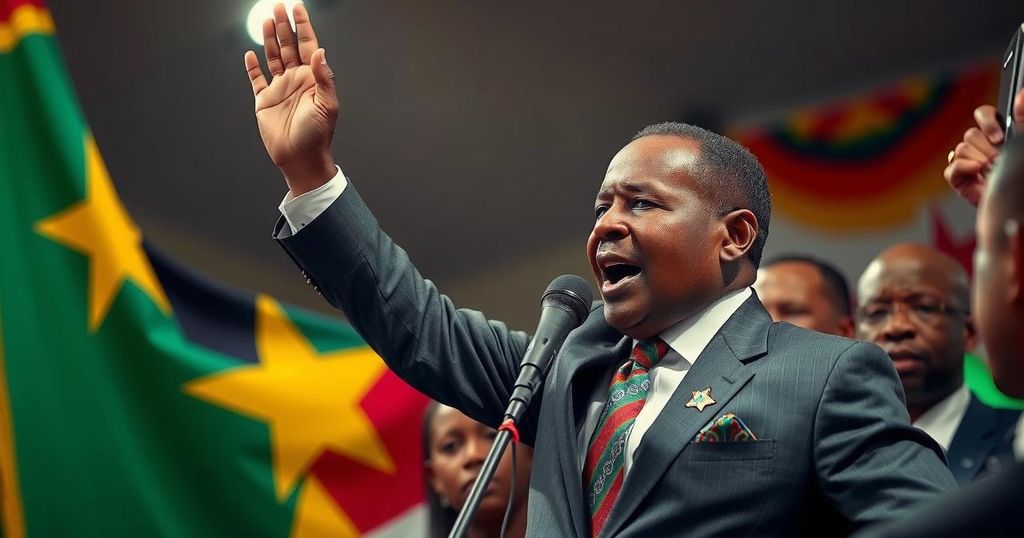Chapo Declared Winner of Mozambique’s Disputed Presidential Election

Daniel Chapo of the Frelimo party has been announced as the winner of Mozambique’s presidential election, obtaining approximately 71 percent of the vote in a process marked by allegations of electoral fraud and violence. This election poses one of the most significant challenges to Frelimo’s nearly 50-year governance amidst a backdrop of a severe insurgency and socioeconomic disparities.
On Thursday, Daniel Chapo was officially announced as the victor of Mozambique’s presidential election following a contentious and tumultuous voting process. Representing the Frelimo party, which has dominated the political landscape for almost five decades, Mr. Chapo garnered approximately 71 percent of the votes cast during the election held on October 9. This victory comes as he prepares to succeed Filipe Nyusi, who has reached the maximum allowed tenure of two five-year terms. The election results were overshadowed by violence and serious allegations of electoral fraud, which Frelimo firmly denies. The nation has been facing considerable upheaval, not least because of an ongoing insurgency by Islamist extremists contributing to the growing instability within the country. This conflict has exacerbated socioeconomic disparities, particularly surrounding Mozambique’s rich natural resources such as gas and precious stones, contrasting sharply with the widespread poverty and unemployment experienced by many citizens. In the days following the election, tensions escalated in the capital, Maputo, where police used tear gas and were reported to have engaged with large crowds demonstrating against perceived electoral malfeasance. These protests were catalyzed by claims that Frelimo had manipulated the electoral process and was implicated in the violent deaths of supporters of Mr. Chapo’s chief opponent. Despite the unrest, the party maintains that the election results align with the citizens’ will, as stated by Ludmila Maguni, a spokeswoman for Frelimo. This electoral cycle represents one of the most significant challenges to Frelimo’s authority since the party led Mozambique to independence from Portuguese colonial rule in 1975 and managed the subsequent civil unrest that plagued the nation. The outcome and public reaction in the wake of this election will likely play a crucial role in shaping the future political landscape of Mozambique.
Mozambique has been governed by the Frelimo party since gaining independence from Portugal in 1975. The party has faced increasing scrutiny and allegations of electoral fraud, particularly in light of ongoing civil unrest and economic inequality. The recent presidential election was marred by accusations of manipulation and violence, leading to protests against the government. Daniel Chapo’s election represents a continuation of Frelimo’s long-standing control amidst these contentious circumstances.
In summary, Daniel Chapo’s presidential victory in Mozambique’s recent election highlights ongoing challenges faced by the Frelimo party amidst significant allegations of fraud and civil unrest. The violent protests and accusations against the governing party reflect deep-seated divisions within the nation, particularly as it grapples with an insurgency and exacerbated poverty despite its wealth in natural resources. The Frelimo party’s determination to affirm the legitimacy of the election results will be pivotal in determining whether peace and stability can be restored in the country.
Original Source: www.nytimes.com







